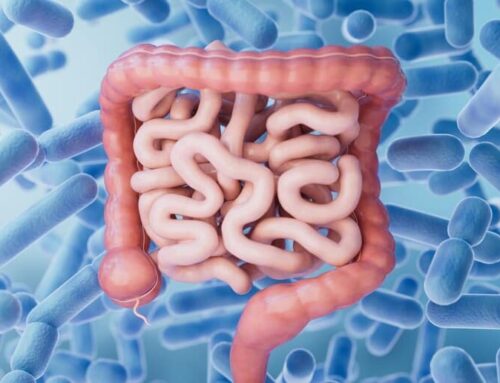Stress is a common feeling that can hurt our physical and mental health. This article will look at ways to manage stress for a healthier life. We’ll cover understanding stress, social support, healthy eating, relaxation, and exercise. These strategies can help you handle stress better and boost your well-being.
Key Takeaways :Stress Management Methods
- Stress can have serious consequences on physical and mental health if left unmanaged.
- Effective stress management involves a multifaceted approach, including developing social support, maintaining a balanced diet, and practicing relaxation techniques.
- Engaging in regular physical activity and leisure activities can help alleviate stress and promote overall well-being.
- Cognitive-behavioral therapy and positive self-talk are powerful tools for reframing negative thought patterns and managing stress.
- Prioritizing quality sleep and establishing healthy routines are crucial for maintaining resilience in the face of stress.
Understanding Stress and Its Impact
Stress is a natural way our bodies react to daily challenges. It can affect both our physical and mental health. Knowing the different types of stress and their effects helps us manage it better.
Types of Stress and Their Effects
Stress comes in two forms: acute and chronic. Acute stress is short-term, like feeling stressed before a big test. It can cause headaches, muscle pain, and stomach issues. Chronic stress lasts a long time and can lead to serious health problems, such as anxiety and heart issues.
Stress can also be psychological or physiological. Psychological stress deals with our thoughts and feelings. Physiological stress is our body’s physical response. These two often work together, affecting each other.
Stress and Physical Health Risks
Long-term stress can lead to serious health issues, like cardiovascular disease, weakened immune function, and digestive issues. The American Psychological Association says stress can make health problems worse and increase the risk of new ones.
Stress can harm our bodies over time. It can raise blood pressure, cause inflammation, and weaken our immune system. This raises the risk of heart disease, stroke, and other serious health issues.
Cultivate Social Support

Building strong social connections is key to handling stress and boosting well-being. People with a strong social support network are more resilient and handle stress better.
Talking to family, friends, and others can give you both emotional and practical support. Sharing your feelings, doing social activities, and getting empathy and help can lessen the bad effects of stress on your mental health.
- Engage in regular social interactions with family and friends
- Join a community group or club to expand your social connections
- Seek out emotional support from trusted individuals during difficult times
- Offer practical help to your loved ones, such as running errands or helping with chores
- Nurture your relationships and make time for quality interactions
Having a strong social support network helps you manage stress better, improves your mental health, and boosts overall well-being. Keeping healthy social connections is key to a good stress management plan.
| Benefits of Social Support | Impact on Stress Reduction |
|---|---|
| Improved emotional well-being | Increased resilience and coping mechanisms |
| Enhanced practical assistance with daily tasks | Reduced physical and mental health risks |
| Strengthened sense of community and belonging | Better overall quality of life and life satisfaction |
“The greatest weapon against stress is our ability to choose one thought over another.” – William James
Seek Good Nutrition and Avoid Unhealthy Habits

Keeping a balanced diet is key to handling stress well. Eating nutritious foods helps your body deal with stress and stay healthy. But, using unhealthy ways to cope, like substance abuse or eating too much, can make stress worse and harm your health.
Importance of a Balanced Diet
Eating foods full of fruits, veggies, whole grains, lean proteins, and healthy fats helps your body handle stress better. These foods are full of vitamins, minerals, and antioxidants. They boost your immune system, control hormones, and keep you feeling good. Adding these foods to your meals can improve your physical health and mental health when you’re stressed.
Avoiding Substances and Unhealthy Coping Mechanisms
- Using too much alcohol, caffeine, or tobacco can make stress worse and cause more health issues. These substances might help you feel better for a little while. But, they mess with your body’s stress response and can start a bad cycle of unhealthy coping mechanisms.
- Like eating too much as a way to cope with stress can hurt your physical health and mental health. It might make you feel better for a bit, but it’s not good for you in the long run.
By choosing a diet full of nutrients and avoiding bad coping habits, you help your body deal with stress better. This keeps you healthy and feeling good overall.
Relax Your Mind and Body

Looking for a healthier lifestyle? Adding relaxation techniques can help manage stress. These include progressive muscle relaxation, meditation, and mindfulness. They help ease stress on both your mind and body.
Progressive Muscle Relaxation Techniques
Progressive muscle relaxation is a great way to relax. It means tensing and then relaxing different muscle groups. This helps lower physical tension and brings calm to your body.
By focusing on each muscle group and letting go of tension, you feel deeply relaxed. This can greatly improve your overall well-being.
Benefits of Meditation and Mindfulness
Meditation and mindfulness are becoming more popular for reducing stress and anxiety. They calm the mind, improve focus, and boost emotional well-being. Regular practice helps you stay in the moment, cutting down on worries about the past or future.
The National Center for Complementary and Integrative Health sees their value in mental health and stress relief.
Using relaxation techniques like progressive muscle relaxation and meditation daily can help manage stress. Taking care of your mind and body boosts your well-being and resilience against life’s challenges.
Stress Management Methods

Managing stress is key to a healthy life. Two main ways to handle stress well are through physical activity and getting professional help.
Physical Activity and Exercise
Regular exercise is a great way to cut down stress. It releases happy hormones that make you feel better and gives you a way to express your feelings. Plus, it helps you sleep well, which is important for handling stress.
It doesn’t matter if it’s a fast walk, a yoga class, or a tough workout. Adding exercise to your daily life can really help with stress.
Seeking Professional Help and Therapy
If stress is too much to handle, seeing mental health experts can be a big help. Counseling and therapy, especially cognitive-behavioral therapy (CBT), can teach you new ways to cope and change negative thoughts. The American Psychological Association says getting help from mental health pros is a top way to reduce stress.
“Regular exercise is one of the most effective ways to manage stress and improve overall well-being.” – American Psychological Association
By mixing physical activity with professional advice, you can make a strong plan to manage stress. Using these proven methods can make you healthier and more able to bounce back from tough times.
Nurture Your Hobbies and Leisure Activities

It’s key to make time for things that make you happy and fulfilled, even when life gets busy. Hobbies and leisure pursuits can help ease the stress of everyday life. They give your mind and body a break they need.
The Importance of Pleasurable Activities
Don’t give up your personal time for work alone. Pleasurable activities are crucial for your mental health and well-being. Whether it’s reading, gardening, or a creative hobby, they let you relax, recharge, and connect with what’s important.
Setting aside time for leisurely pursuits brings enjoyment and creativity. It helps reduce stress and supports a better work-life balance. These activities act as a stress relief tool. They let you step back and focus on what makes you happy and fulfilled.
“Taking time to do things you love is not self-indulgence, it’s self-preservation.”
It’s not a luxury to enjoy your hobbies and leisure pursuits. It’s essential for a balanced and healthy life. By taking care of these activities, you improve your mental health and well-being. This helps you handle life’s ups and downs better.
Reframe Your Thinking with Cognitive Behavioral Therapy
Cognitive Behavioral Therapy (CBT) is a key method for managing stress. It’s based on solid research and helps people spot and fight negative thoughts. This can lead to less stress and anxiety.
CBT shows that our thoughts, feelings, and actions are closely connected. Stress can make our thoughts twist, causing more negative feelings and bad coping habits. CBT teaches people to notice and question these negative thoughts. Then, they can switch them with more realistic and positive ones.
The American Psychological Association has looked into CBT’s benefits for stress and mental health. Studies show it can lessen symptoms of depression, anxiety, and stress. It does this by improving how we handle our feelings and helping us think more flexibly.
“Cognitive Behavioral Therapy is a highly effective approach to managing stress and improving overall mental health. By developing a deeper understanding of how our thoughts influence our feelings and behaviors, individuals can cultivate a greater sense of control and resilience in the face of life’s challenges.”
– Dr. Emily Carr, Clinical Psychologist and Stress Management Expert
Adding CBT to everyday life helps people change negative thoughts and fight false beliefs. This makes them more positive and adaptable. It’s good for handling stress now and keeps them feeling emotionally strong and happy over time.
Embrace Nature and Green Spaces

Being in nature can help fight the stress of modern life. Studies show that being in green spaces can boost both mental and physical health. This can be through activities like walking in a park, gardening, or just enjoying the outdoors.
Many studies highlight how nature can reduce stress. Outdoor activities like hiking, cycling, or just enjoying nature can release happy hormones. These hormones help lower anxiety and depression. Being mindful and connected in nature also improves emotional health and leads to a better lifestyle.
Being in nature is good for your body too. Exercising in green spaces can improve heart health, build muscles, and make you stronger. The fresh air and sunlight help your body heal and keep your immune system strong.
Adding nature to your daily life can help manage stress. This could be a morning meditation in a park or a weekly hike. Nature helps you feel more mindful, refreshed, and overall well.
Protect Your Sleep and Develop Healthy Routines

Quality sleep is key to handling stress well. Studies from the American Psychological Association show that stress can mess with sleep patterns. On the other hand, bad sleep can make stress worse. So, it’s important to have good sleep habits.
Going to bed at the same time every night, cutting down on screen time before sleep, and relaxing before bed can help. These actions improve stress management and boost overall health. Good sleep quality leads to better cognitive function and emotional regulation. This means a healthier and more balanced life.
| Sleep Hygiene Tip | Benefit |
|---|---|
| Establish a consistent sleep schedule | Regulates the body’s natural circadian rhythms |
| Limit screen time before bed | Reduces exposure to blue light that can disrupt sleep |
| Practice relaxation techniques | Calms the mind and body, promoting better sleep quality |
Adding these healthy routines to your daily life helps manage stress better. It also brings many benefits of quality sleep.
“Adequate, high-quality sleep is essential for effective stress management.” – American Psychological Association
Positive Self-Talk and Emergency Stress-Stoppers

Life can be tough, but learning to talk to yourself in a positive way can help. Using quick ways to relax can also be very useful. By changing your thoughts to kinder ones, you can better handle stress and anxiety.
The Power of Positive Self-Talk
Positive self-talk is a great way to deal with stress. When you’re feeling overwhelmed, stop and think of more positive things to say to yourself. Saying “I can handle this” or “I am strong enough” can make you feel more in control and reduce stress.
Quick Stress Relief Techniques
- Deep Breathing: Breathe in slowly through your nose, hold it, then breathe out through your mouth. Do this a few times to calm down.
- Brief Walk: Take a short walk away from the stressful situation. Even a quick walk around the office can help.
- Calming Activity: Do something relaxing, like listen to music, meditate, or write in a journal.
These quick ways to relax, supported by the American Heart Association, can help you calm down fast. Having these techniques ready can help you deal with stress right away. This keeps you feeling better and more balanced in life.
Also Read : Daily Water Requirements For Optimal Health
Conclusion
In this article, we looked at many ways to handle stress and live a healthier life. We talked about the different kinds of stress and how it affects our mental health and physical health.
We shared tips like building social support, eating well, relaxing, staying active, and changing negative thoughts. These methods help with stress relief and self-care. Adding these to your daily life can help you deal with life’s challenges better and feel better overall.
By using these coping strategies, you can work towards a healthier and balanced lifestyle. This can improve your mental health and physical health. The advice in this article is a great help for anyone wanting to handle stress and live a better life.
FAQs
Q: What are some proven stress management methods recommended by Mayo Clinic?
A: Mayo Clinic suggests practicing deep breathing, engaging in physical activity, maintaining a healthy diet, getting enough sleep, and finding healthy ways to cope with stress.
Q: How can I reduce stress in my life?
A: You can reduce stress in your life by practicing relaxation techniques, setting boundaries, prioritizing tasks, and seeking support from friends, family, or a therapist.
Q: What are some stress relievers I can incorporate into my daily routine?
A: Stress relievers like meditation, yoga, journaling, listening to music, spending time in nature, and engaging in hobbies can help lower stress levels and promote relaxation.
Q: How does stress impact our overall health and well-being?
A: Chronic stress can have negative effects on both our physical and mental health, leading to increased risk of various illnesses, decreased immune function, and mental health issues such as anxiety and depression.
Q: How can I manage stress when it seems overwhelming?
A: When stress is overwhelming, it may be helpful to practice mindfulness, seek professional help from a therapist or counselor, prioritize self-care, and learn to be assertive in setting boundaries.
Q: What are some common stressors that people often face?
A: Common stressors include work pressure, relationship issues, financial concerns, major life changes, health problems, and difficult emotions like resentment or anxiety.
Q: Can physical activity help in reducing stress levels?
A: Yes, engaging in physical activity can release endorphins, improve mood, reduce stress hormones, and enhance overall well-being, making it an effective stress reliever.
Q: How can humor be used as a way to manage stress in daily life?
A: Maintaining a sense of humor can help provide perspective, reduce tension, and increase resilience in facing stressors, making it a valuable tool in stress management.
Source Links
- https://www.mayoclinic.org/healthy-lifestyle/stress-management/in-depth/stress-relievers/art-20047257
- https://www.apa.org/topics/stress/tips
- https://www.heart.org/en/healthy-living/healthy-lifestyle/stress-management/3-tips-to-manage-stress








Leave A Comment